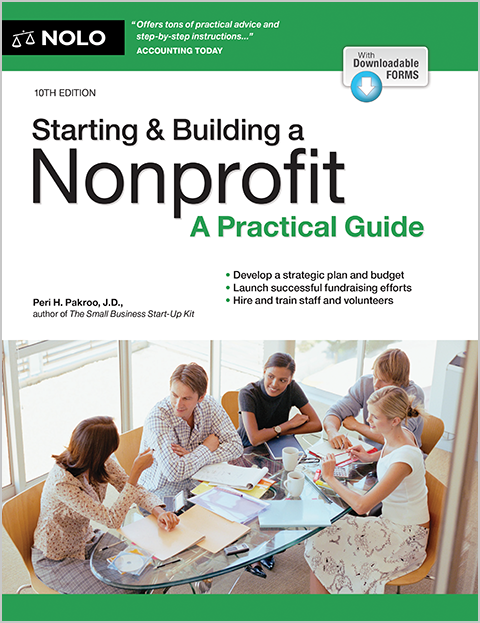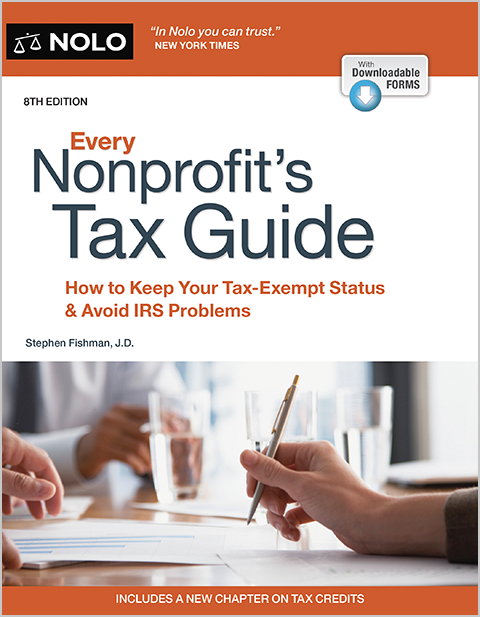Here's what nonprofits need to know about IRS Form 990, including the who, what, when, and why.
Many nonprofit, tax-exempt 501(c)(3) organizations are required to file an annual informational tax return called "Form 990, Return of Organization Exempt from Income Tax." Here's how to gather the necessary information to successfully and easily file the return.
The Importance of IRS Form 990
Form 990 is an informational return that most nonprofit, tax-exempt organizations have to file annually with the IRS. The form is due on the 15th day of the fifth month after the close of the nonprofit's fiscal year. If your nonprofit's fiscal year corresponds with the calendar year, then your Form 990's due date is May 15.
Completing and filing Form 990 is an important aspect of a tax-exempt organization's life cycle because it serves two functions for two important audiences.
- Informs the IRS. The Form 990 provides the IRS with information about your nonprofit's activities and financial status to demonstrate that your nonprofit still meets the qualifications for tax exemption.
- Informs the public. The Form 990 informs the public about crucial aspects of your nonprofit. Most of the pages and tables are available for public inspection, including those describing executive compensation and program expenditures. Potential donors and grantors can, and many routinely do, look at an organization's Form 990 before making decisions about charitable giving. The media and nonprofit watchdog groups can also check out 990s.
Visit the IRS's Form 990 Resources and Tools webpage for more details on the form and filing requirements.
Does Your Nonprofit Have to File Form 990?
Most tax-exempt organizations and nonexempt charitable trusts have to file some type of Form 990 informational return. However, there are three general exceptions:
Some religious institutions. Some religious institutions aren't required to file Form 990. Typically, the religious organizations that aren't required to file a return include churches, temples, mosques, synagogues, and other places of worship. These exempt organizations also aren't required to register for tax-exempt status (by filing Form 1023) with the IRS. You can learn more in our article about qualifying for tax-exempt status without filing an IRS application.
Annual receipts less than $50,000. Organizations with annual gross receipts of less than $50,000 aren't generally required to file Form 990. However, they do have to file an electronic postcard form called "Form 990-N." You must submit the e-Postcard online through the IRS website.
Group returns. Organizations included in a group return usually don't have to file Form 990.
How to Complete Form 990
Form 990 contains a core form of 12 parts, which all filing organizations must complete. The core form requests financial data as well as information about your organization's programs.
On the first page of the form, you'll find a summary sheet. The summary sheet pulls together all the information from the core form and the schedules (discussed below), providing a quick snapshot of the organization. The first question in the summary sheet allows the organization to highlight either its mission or its significant activities—this part can be important for fundraising and marketing purposes.
Form 990 also contains a formal checklist (in Part IV) to help you figure out which schedules to fill out and attach to your return. Your nonprofit's activities, operations, and funding throughout the year will largely dictate which schedules you'll need to complete and include in your annual filing. For example, if your nonprofit has a conservation easement, then you'll need to complete part of Schedule D, Supplemental Financial Statements.
Getting Help With Filing Form 990
Nonprofits and their reporting requirements can get fairly complicated. It's important that all information you supply to the IRS is accurate and complete. If you don't file the proper forms or you provide inaccurate information, you could lose your nonprofit's tax-exempt status or face other consequences.
Some nonprofits can get by without hiring an attorney. But other nonprofits will find it beneficial to consult with a business or nonprofit attorney when forming and running their nonprofit, including when they submit their annual filing requirements and financial reports. You can also work with a tax attorney or accountant for your IRS returns and financial reports.
For more in-depth information and guidance, check out our book Every Nonprofit's Tax Guide, by Stephen Fishman (Nolo).



